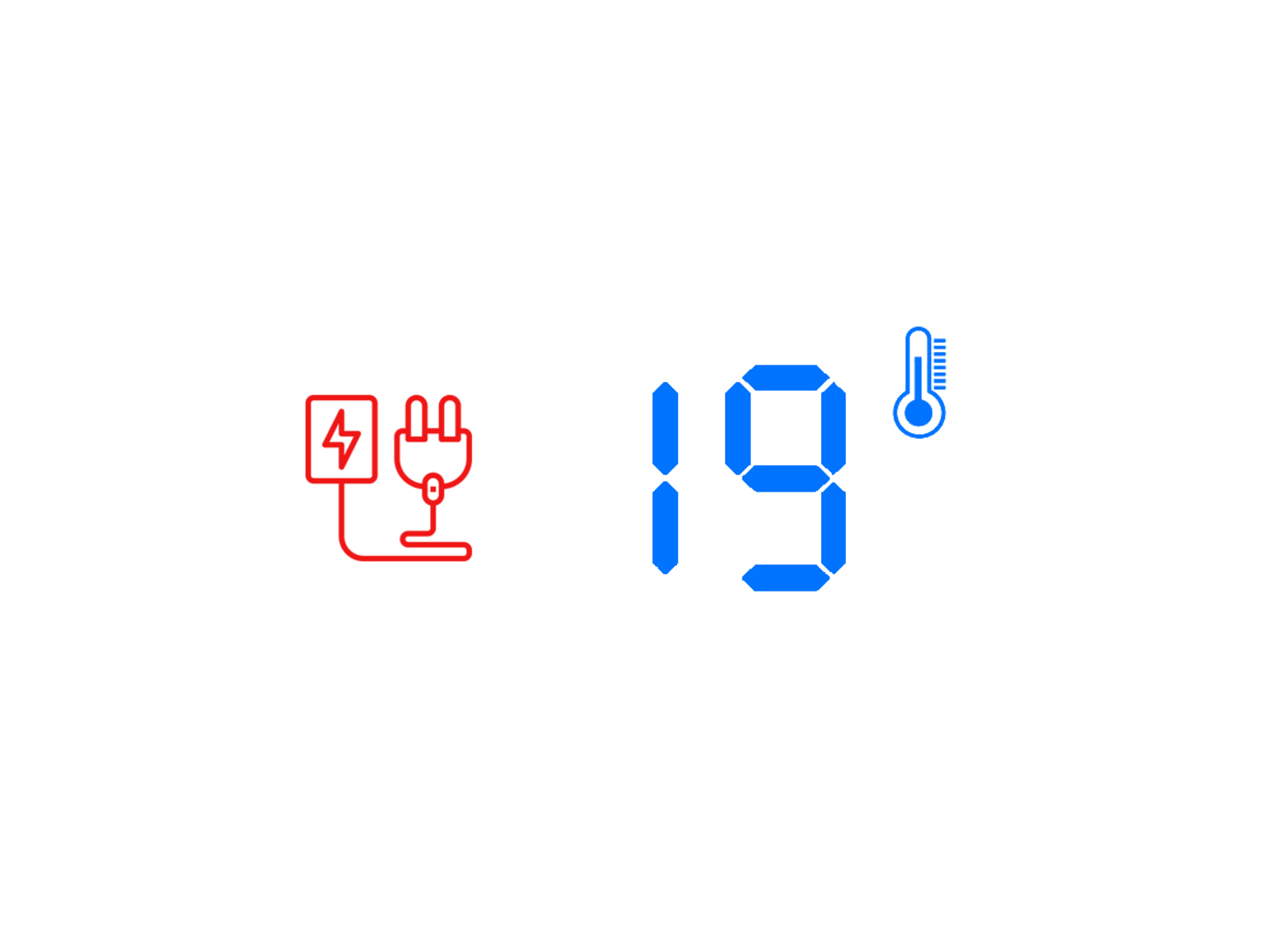
The Ongoing Electricity Crisis Hits KHiO: Buildings to Be Kept at 19 Degrees
On Tuesday, the academy director informed the board that KHiO must introduce extensive measures in order to cover the rising cost of electricity and the resulting imbalance in the institution’s finances. On Friday, 23 September, the entire staff will be invited to a general assembly where they will be briefed about the financial situation.
We Are All in the Same Boat
Markus Degerman, KHiO’s rector and board chair, and Kristel Jæger Skorge, the academy director, met with the Ministry of Education last Thursday. They informed the ministry that the high price of electricity was severely impacting the school and increasing its expenses.
 “We will be asking the ministry for additional funding,” says Markus Degerman, KHiO’s rector and board chair. “But the signals we received from the ministry was that additional funding is highly uncertain and not something that KHiO can base its further work on. This entails that KHiO must deal with the situation by pursuing several parallel strategies in order to control the financial changes.”
“We will be asking the ministry for additional funding,” says Markus Degerman, KHiO’s rector and board chair. “But the signals we received from the ministry was that additional funding is highly uncertain and not something that KHiO can base its further work on. This entails that KHiO must deal with the situation by pursuing several parallel strategies in order to control the financial changes.”
 “KHiO is also requesting that the draft budget for 2023 should include funds, or financial mechanisms, that compensate for the additional expenses stemming from the rising price of electricity,” adds the academy’s director Kristel Jæger Skorge. “As the leadership of this institution, we must nevertheless both challenge and invite the various departments and sections to play their role in the demanding process of finding ways to cover the high additional costs. We also have to introduce a few emergency measures in order to cut down on the additional costs accrued in 2022.”
“KHiO is also requesting that the draft budget for 2023 should include funds, or financial mechanisms, that compensate for the additional expenses stemming from the rising price of electricity,” adds the academy’s director Kristel Jæger Skorge. “As the leadership of this institution, we must nevertheless both challenge and invite the various departments and sections to play their role in the demanding process of finding ways to cover the high additional costs. We also have to introduce a few emergency measures in order to cut down on the additional costs accrued in 2022.”
The most important cost-cutting measures are as follows:
- The standard room temperature in all of the school’s buildings will be 19 degrees.
- A guard will make a round every evening at 19:00–20:00 to turn off the lights in the dance studios, audition rooms, and theatre stages, as well as the stage area and mounting hall, when these are not in use.
- The sauna ovens in the theatrical arts building will be on for fewer hours.
- The ventilation will be reduced in the evening and on days when this will have little or only a barely perceptible effect.
- Travelling and the procurement of goods and services will be reduced.
- The investment plan will be reviewed with an eye to postponing/ redefining projects.
- All hiring – whether for technical-administrative or academic positions – must be evaluated and, if necessary, put on hold.
- We will discuss a potential rent reduction with KHiO’s landlord.
Dialogue with the landlord
KHiO rents the facilities at Fossveien 24. The rent is index-regulated, which means that the rent increases along with the general price increase in society. The leadership will engage in a dialogue with the landlord to request a reduction in the rent.
The rector will discuss the additional costs with colleagues within the higher education sector with an eye towards establishing a joint initiative for the Norwegian authorities to introduce financial mechanisms that compensate for the rising price of electricity.
Internally at KHiO, all departments and sections will be invited to a dialogue meeting on the budget ceiling for 2023.
Estimates of the increased costs
KHiO’s additional costs were initially estimated to be between NOK 12 and 15 million. If KHiO does not reduce its spending overrun in the budget items in 2022, the overrun will carry over to subsequent years. The prognosis suggests that the cost of energy will remain high in 2023, something that will make balancing the budget highly challenging. In a worst-case scenario, this may result in severe budgetary cuts for KHiO’s academic departments and administrative sections.
The KHiO board kept informed
The academy’s board was informed about the financial situation in a meeting on 13 September. The board adopted the following resolution in case no. 53/22:
“The board asks the rector and director to draft a plan and implement measures to balance the finances. It is requested that the case be addressed at the board meeting in October 2022. The board authorises the rector and director to procure external assistance if necessary.”
Facts and figures
On 6 October, the Norwegian government will submit its proposed national budget for 2023 to the Storting.
Funds for covering KHiO’s expenses for rent and electricity are included in the annual allocation in the national budget. In 2022 KHiO received state funding of NOK 382.4 million, a sum that is meant to cover rent, wages, other operational expenses and all of the school’s academic activities. In 2021 just the annual rent alone amounted to NOK 136.1 million.
KHiO has floor space of 43,000 m2 at its disposal in Fossveien 24 through a long-term tenancy agreement with the Brødrene Jensen real estate firm. It is the Ministry of Education as the responsible national authority that has entered into this agreement.
In Norway, as in all other European countries, there has been a more or less explosive increase in the cost of electricity in 2021/22. The government has implemented support schemes for private households, but the state has not established corresponding schemes for the business sector or for state institutions. According to the state’s financial directives, the various institutions are obliged to cover all their additional costs.
19 degrees as the standard indoor temperature in public buildings has already been introduced in several European countries, for example Denmark and Germany. The EU is discussing whether this should be implemented as a standard.